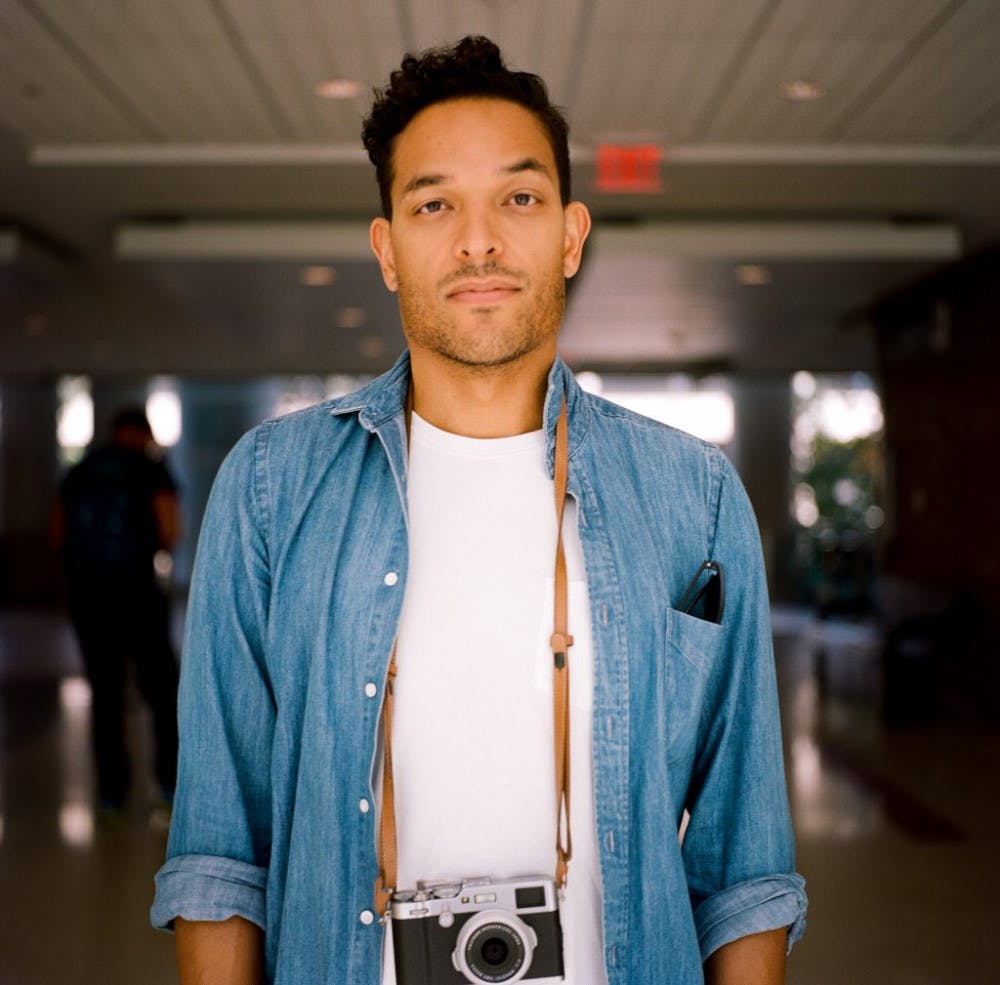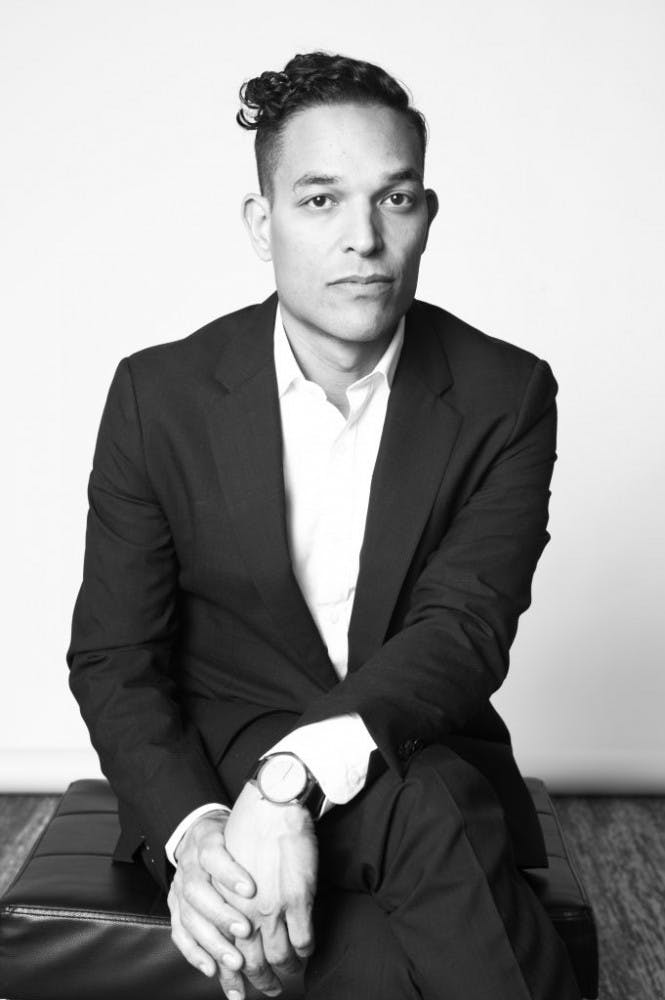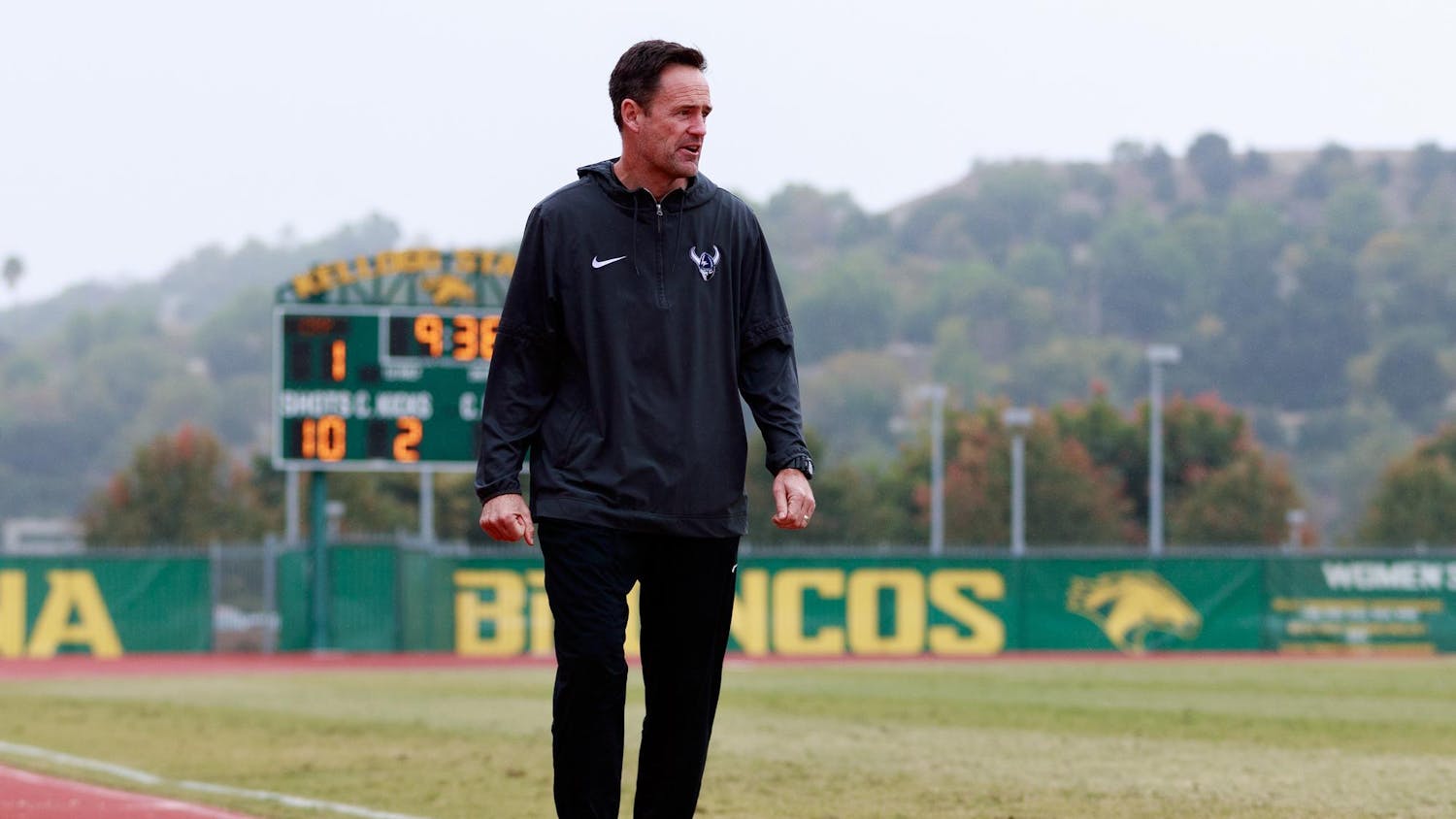By Jack Taylor He doesn’t give off the attitude of someone who has won an Oscar. Ever humble and honest, Western alum Thomas McKay Martin Jr., who goes by T.J., has a deep desire to create honest work in a cutthroat industry. Martin is best known for directing the documentary “Undefeated,” which earned him the Academy Award for Best Documentary Feature in 2012, making Martin the first African American to win in the category. Martin is currently earning acclaim for the 2017 “LA 92,” a documentary focusing on the Rodney King trial and aftermath. But long before the awards and success, Martin was a child enchanted with films. Charismatic and insightful, Martin cited the experience of getting HBO installed in his television as a child as the springboard for his interest in filmmaking.

 Photo courtesy of T.J. Martin[/caption]
“One aspect about T.J. is that he was always inclusive in his thinking and never wanted to leave anyone out of the conversation,” Estrada said. “He was always conscious of the viewpoints and positions other students would take and how they interfaced with his own thinking.”
Furthermore, Estrada commented on T.J’s desire to be a filmmaker and how it impacted his school work.
“T.J. foremost followed his own dreams and always wanted to be a filmmaker. He was able within the American Cultural Studies program and Fairhaven to carve out a concentration and academic pathway that made sense to him,” Estrada said.
Martin explained how attending Fairhaven influenced his work life through teaching him to respect all points of view and listen to everyone.
“My job is not to come in with all the answers. My job is to take into account all types of points of views, look at media dissemination – like where are you consuming this – and to pose critically challenging questions that are an opportunity to foster a more engaged dialogue,” he said.
Photo courtesy of T.J. Martin[/caption]
“One aspect about T.J. is that he was always inclusive in his thinking and never wanted to leave anyone out of the conversation,” Estrada said. “He was always conscious of the viewpoints and positions other students would take and how they interfaced with his own thinking.”
Furthermore, Estrada commented on T.J’s desire to be a filmmaker and how it impacted his school work.
“T.J. foremost followed his own dreams and always wanted to be a filmmaker. He was able within the American Cultural Studies program and Fairhaven to carve out a concentration and academic pathway that made sense to him,” Estrada said.
Martin explained how attending Fairhaven influenced his work life through teaching him to respect all points of view and listen to everyone.
“My job is not to come in with all the answers. My job is to take into account all types of points of views, look at media dissemination – like where are you consuming this – and to pose critically challenging questions that are an opportunity to foster a more engaged dialogue,” he said.
“I remember watching a lot of movies – ‘The Color Purple,’ in particular – and being young, not fully understanding my own cultural history. I remember without that appropriate context, still having an emotionally charged response to that film and I remember explicitly being like, ‘I don’t know what it is but I wanna be able to do that for other people.’”
T.J. Martin
Oscar winning filmmaker
Suzanne Baker, the admissions and outreach coordinator for Fairhaven College said Martin’s experience is an example of how students in the program can personalize their own studying. “It’s a interdisciplinary college, so by definition, the sky's the limit in terms of different careers students can go for,” Baker said. “They can study a variety of different topics.” Martin’s most recent project was directing National Geographic’s “LA 92,” along with his directing partner Daniel Lindsay. The documentary was released last year to observe the 25th anniversary of the Rodney King trial, which gained notoriety for being one of the first cases of recorded footage of police brutality. The film earned Martin and Lindsay the Primetime Emmy Award for Exceptional Merit in Documentary Filmmaking in 2017.
 Photo courtesy of T.J. Martin[/caption]
Martin continued to explain how you could look at the papers from the 1960s, 1990s and present day and see shockingly similar headlines dealing with the same issues of police brutality.
Covering such tough and intense topics in his films has elevated Martin to a class of his own. Regarding his Oscar win, Martin said, “In all seriousness, it was surreal.”
Martin also spoke on his historic win and the ugly truth it shows of how much Hollywood still needs to improve when it comes to diversity.
“There are companies putting forth an effort to expand upon who they traditionally hire. Having said that, I don’t think it's enough because what we are talking about is the psyche of a culture,” he said.
Martin said the majority of the people who search for content to produce in Hollywood are straight white men. These men essentially have the power to control the narrative of the content getting produced in Hollywood.
Looking forward, Martin said that he and his directing partner will both be working on a television episode of a Netflix series, but that nothing has been announced officially.
“There’s always five or six things you’re developing that aren’t real until you get the money,” Martin said. “Nothing has been announced yet, but there are a couple projects that we will be executive producing on.”
Photo courtesy of T.J. Martin[/caption]
Martin continued to explain how you could look at the papers from the 1960s, 1990s and present day and see shockingly similar headlines dealing with the same issues of police brutality.
Covering such tough and intense topics in his films has elevated Martin to a class of his own. Regarding his Oscar win, Martin said, “In all seriousness, it was surreal.”
Martin also spoke on his historic win and the ugly truth it shows of how much Hollywood still needs to improve when it comes to diversity.
“There are companies putting forth an effort to expand upon who they traditionally hire. Having said that, I don’t think it's enough because what we are talking about is the psyche of a culture,” he said.
Martin said the majority of the people who search for content to produce in Hollywood are straight white men. These men essentially have the power to control the narrative of the content getting produced in Hollywood.
Looking forward, Martin said that he and his directing partner will both be working on a television episode of a Netflix series, but that nothing has been announced officially.
“There’s always five or six things you’re developing that aren’t real until you get the money,” Martin said. “Nothing has been announced yet, but there are a couple projects that we will be executive producing on.”





